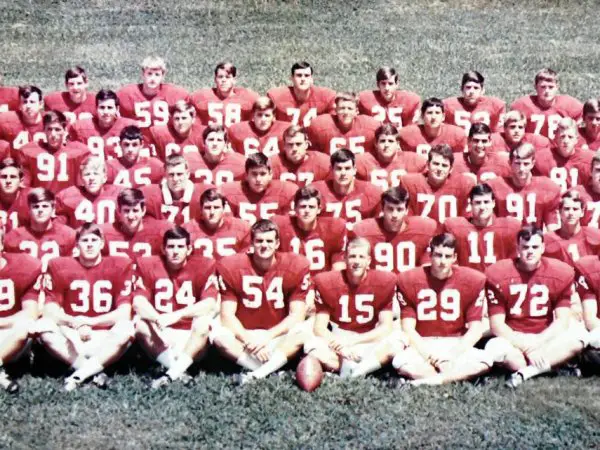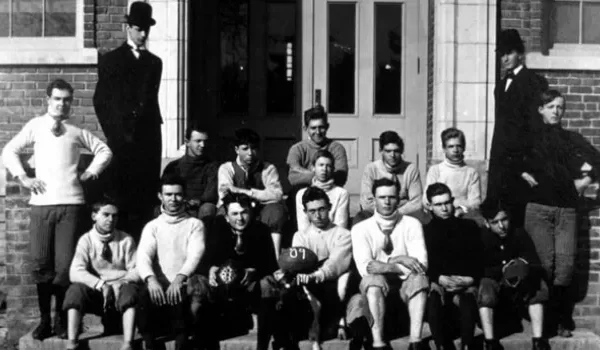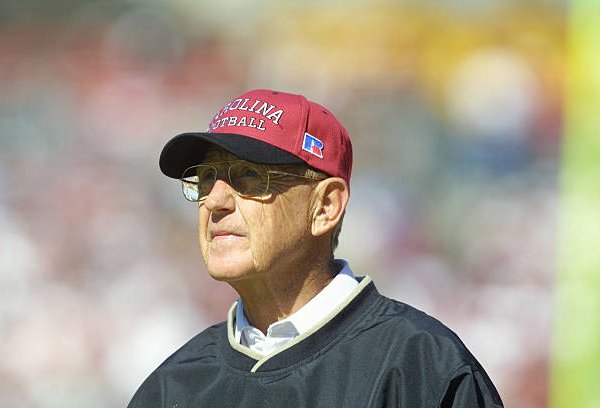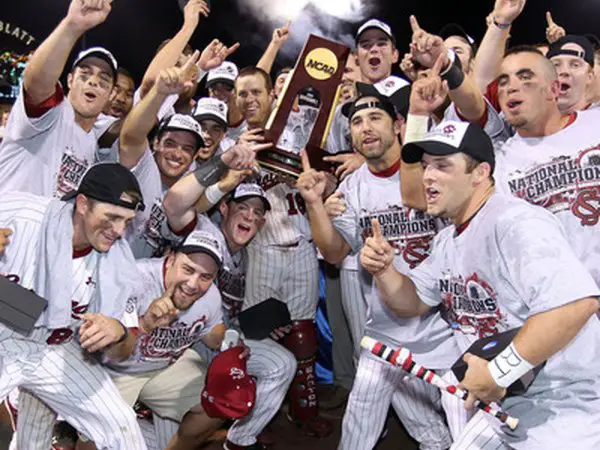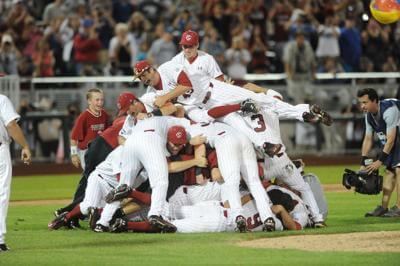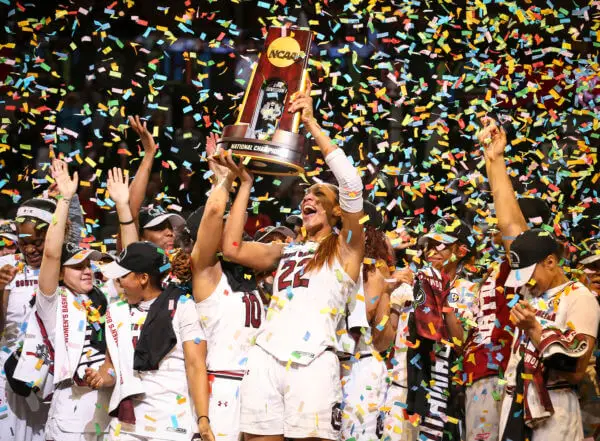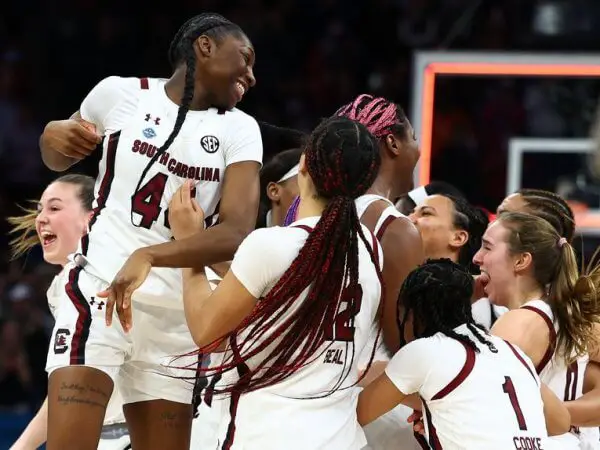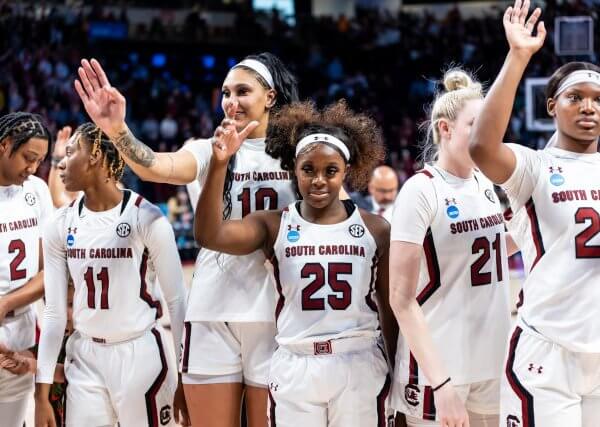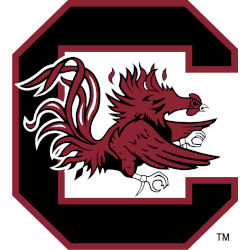
College Sports Established
1922
Location
Columbia, South Carolina
College Name
University of South Carolina
Collegiate History
1973 - Present / NCAA Division 1
1922 - 1973 / University Division of the NCAA
Conference History
1991 – Present / SEC Conference
1983 - 1991 / Metro Conference
1971 - 1983 / Independent
1953 - 1971 / ACC Conference
1922 - 1953 / Southern Conference
Nickname
Gamecocks - The South Carolina Gamecocks are among the country's most recognizable college sports teams. The team's mascot, Cocky, and their unique nickname have become synonymous with University of South Carolina athletics. But where did this nickname come from? Let’s look at how the Gamecocks got their name and what it means for fans today.
The origin story dates back to 1901 when an alumnus named Richard Jakes suggested that "Gamecock" be adopted as the official school mascot due to its association with courage and tenacity—two qualities he felt were essential for success on any athletic field or court. His suggestion was enthusiastically met by students, faculty members, alumni, and administrators alike, who all embraced it wholeheartedly without hesitation!
Since then, “Gamecock” has been used as a symbol of strength within Athletics Department circles and more broadly across campus life, representing physical prowess and mental fortitude too! It is no wonder why so many people have taken up this moniker proudly over time; after all, there is something special about being part of a group that stands together against adversity while displaying admirable traits like perseverance & resilience even when faced with difficult circumstances or odds stacked against them! This sentiment rings true now more than ever before, given recent events surrounding our beloved university community – making us the proudest supporters we can be!!
In conclusion: The South Carolina Gamecocks may be another NCAA team on paper - but they are much more than that for those who call themselves fans; they represent courage & tenacity embodied in one powerful image which will continue inspiring generations upon generations into the future years ahead!!
NCAA Championships
Baseball 2
2011, 2010
Men's Basketball 0
Women's Basketball 3
2024, 2022, 2017
Football 0
Soccer 0
- 1892
- 1950
- 2000
- 2010
- 2011
- 2017
- 2021
- 2024
-
first football team at the University of South Carolina is formed
In 1892: The first football team at the University of South Carolina is formed -
Football team wins its first conference championship
In 1950: The Football team wins its first conference championship and makes its first bowl appearance, the Gator Bowl -
Football team hires Lou Holtz as its head coach
In 2000: The team hires Lou Holtz as its head coach, who would lead them to a remarkable turnaround from 0-11 to 8-4 and a win in the 2000 Outback Bowl in his first season. He would also lead them to two more bowl appearances and one top-20 finish in his six seasons -
The baseball team wins its first national championship
In 2010: The baseball team wins its first national championship by defeating UCLA 2-1 in the best-of-three final series of the College World Series. They also set a record for most consecutive NCAA Tournament wins with 11 -
Gamecocks NCAA World Series Champs 2011
South Carolina finished the 2011 regular season 44–12 (22–8 SEC) and shared the SEC regular-season championship with divisional rivals Florida and Vanderbilt, but posted a 1–2 mark in the SEC Tournament in Hoover, Alabama despite their #1 overall seeding. Once the NCAA Tournament began, however, the Gamecocks rode strong pitching, clutch hitting, and incredible defense while cruising through their Regional ... -
Women’s NCAA Basketball Champs 2017
The 2017 NCAA Women’s Division I Basketball Tournament was played from Friday, March 17 to Sunday, April 2, 2017, with the Final Four played at the American Airlines Center in Dallas, Texas on March 31 and April 2. This was the first time that the women’s Final Four was played in Dallas and the first time since 2002 that the ... -
Lady Gamecocks Follow Through as #1, Winning NCAA Women’s Basketball Champs
The 2022 NCAA Division I Women’s Basketball Tournament was a single-elimination tournament of 68 teams to determine the National Collegiate Athletic Association (NCAA) Division I college basketball national champion for the 2021–22 NCAA Division I women’s basketball season. The 40th edition of the tournament began on March 16, 2022, and concluded with the championship game on April 3 at Target ... -
South Carolina Gamecocks Claim Victory Over Iowa
The 2024 NCAA Women’s Basketball National Championship saw the South Carolina Gamecocks secure a historic victory, defeating the Iowa Hawkeyes with a final score of 87-75. The championship game showcased the exceptional talent of players like Caitlin Clark, who has made a significant impact on women’s basketball. Despite Iowa’s strong performance, South Carolina’s dominance throughout the season culminated in a ...
To qualify as the greatest player for this team, the player must have played one season for this team. If not, we will remove the player.
* verifies that player has played for this team as an added player by a fan.
History of the Gamecocks
Throughout their history, The Gamecocks have seen numerous successes across various sports, including baseball, basketball, and football. In baseball alone, they’ve won two SEC championships (2011 & 2012), four College World Series appearances (1975-1976; 2002; 2011-2012), and three National Championships (2010-2012). On top of that impressive feat is seven All-Americans from 1975 to 2016!
Football, wise The Gamecocks are no slouch either, with five bowl appearances since joining SEC playback '92 -'93 season, along with six consecutive winning seasons between 2010 – 2015, which included 11 wins during the 2013 campaign under head coach Steve Spurrier who was inducted into College Football Hall Of Fame last year!
Basketball has also been very good for USC over the years too, as both men's and women's teams made it past the Sweet 16 round multiple times each while combining eight conference tournament titles throughout their tenure within league play since the 1993–94 season when they joined up officially alongside the other schools like Alabama Arkansas Florida Georgia Kentucky Louisiana Mississippi State Tennessee Texas A&M Vanderbilt etc.
Overall there are many reasons why fans should be excited about what the future holds for this team, given its rich tradition and success stories already achieved so far, plus potential incoming talent coming through the pipeline every few years or so, making them perennial contenders in any sport they compete against rivals around the country!

